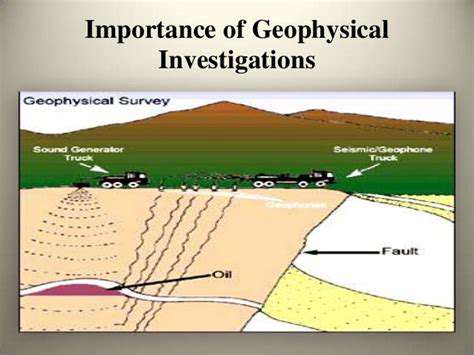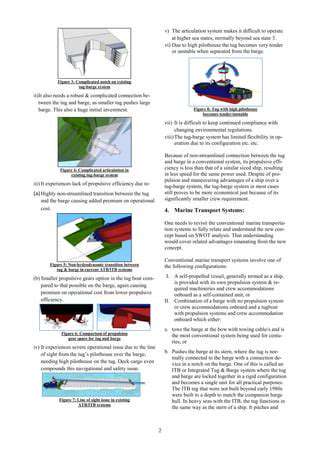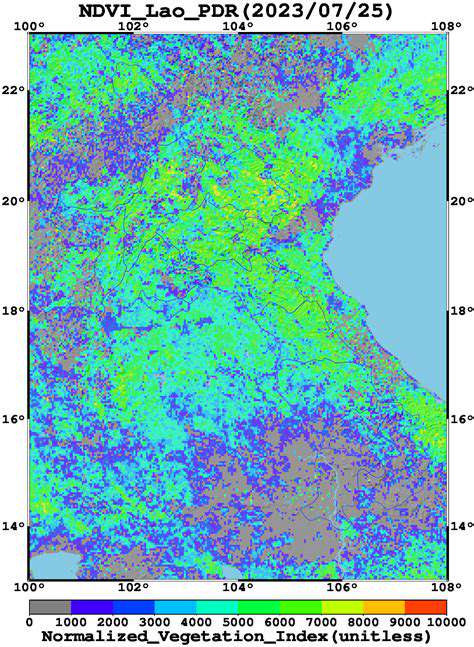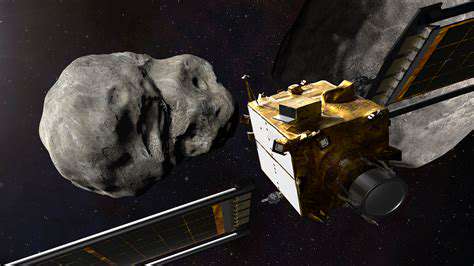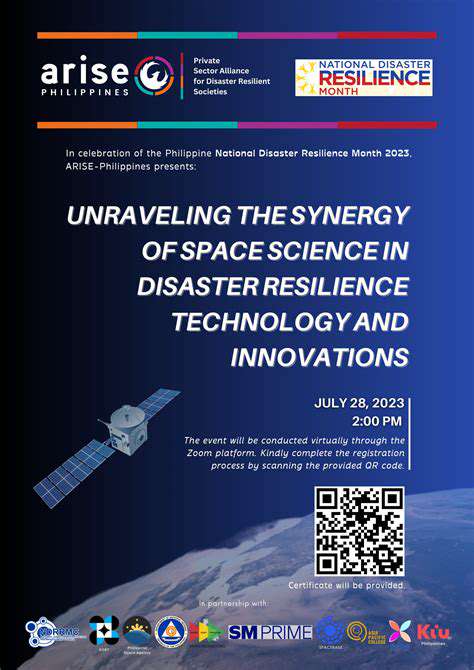
Understanding Planetary Habitability
Planetary habitability is a complex concept that encompasses a multitude of factors, making it a fascinating area of scientific study. It's not simply about the presence of liquid water, although that's undeniably crucial. A habitable planet needs a stable environment conducive to the emergence and evolution of life, and this includes a range of conditions, from the presence of essential chemical elements to the protection from harmful radiation. Understanding these complex interactions is essential for identifying potentially life-supporting worlds beyond our own solar system.
Beyond the basic necessities, the long-term stability of a planet's climate plays a vital role in its habitability. A planet with a fluctuating climate, marked by extreme temperature swings or dramatic shifts in atmospheric composition, would be far less likely to support life over extended periods. The evolution of life itself is intimately tied to these environmental conditions, and the ability to maintain a stable environment over vast spans of time is likely crucial for the emergence of complex organisms.
Factors Influencing Habitability
Numerous factors contribute to a planet's habitability, intertwining in intricate ways. One of the most critical is the presence of liquid water, which is essential for many biological processes. However, liquid water alone isn't sufficient. The planet also needs a suitable temperature range to maintain this liquid state, along with a protective atmosphere to regulate temperature and shield against harmful radiation from space.
Another crucial factor is the presence of a stable energy source, such as a star. A consistent and reliable energy source is necessary to power the various biological processes that sustain life. The planet's distance from its star, the star's size and energy output, all contribute to the overall energy balance. Beyond these key factors, the presence of elements necessary for life—such as carbon, hydrogen, oxygen, and nitrogen—is also critical to the emergence and development of life forms.
The Search for Extraterrestrial Life
The search for extraterrestrial life is inextricably linked to the study of planetary habitability. Scientists are actively seeking planets that possess the characteristics necessary to support life, focusing on those in the habitable zone around stars. This zone is the region where a planet can maintain liquid water on its surface, making it a prime candidate for potential life.
The discovery of potentially habitable exoplanets has dramatically expanded our understanding of the universe's vastness and the possibility of life beyond Earth. These discoveries inspire further research, pushing the boundaries of our knowledge and fueling the quest to answer one of humanity's most profound questions: are we alone? Analyzing the atmospheres of these exoplanets for biosignatures, chemical indicators of life, is a crucial step in this endeavor.
The Future of Astrobiology: New Technologies and Discoveries

Unveiling the Secrets of Exoplanets
The discovery of exoplanets, planets orbiting stars other than our Sun, has revolutionized our understanding of the potential for life beyond Earth. These worlds, ranging in size and composition, orbit a vast array of stars, offering a plethora of environments to explore. Scientists are now actively searching for biosignatures—chemical indicators of life—in the atmospheres of these distant planets, using powerful telescopes like the James Webb Space Telescope. The quest to find evidence of life beyond our solar system is a monumental undertaking, but the potential rewards are immense.
The sheer number of potentially habitable exoplanets makes the search for extraterrestrial life an exciting and increasingly feasible endeavor. The ongoing analysis of exoplanet data promises to reveal critical clues about the prevalence of life in the cosmos. This research will provide invaluable insights into the diversity of planetary systems and the conditions necessary for life to emerge and thrive.
Exploring the Deep Oceans of Our Solar System
Our own solar system harbors a surprising array of potentially habitable environments, including the subsurface oceans of icy moons like Europa and Enceladus. These hidden oceans, shielded from the harsh radiation of space, may harbor conditions favorable to life, possibly even more diverse and abundant than life on Earth's surface.
The exploration of these subsurface oceans is a high priority for future missions. These missions will seek to determine the chemical composition of these oceans and, crucially, whether they contain the necessary elements for life as we know it. The presence of liquid water, organic molecules, and a source of energy are all key ingredients in the recipe for life. The possibility of finding life in these environments would fundamentally change our understanding of the potential for life beyond Earth.
Advancements in Astrobiological Techniques
The field of astrobiology is constantly evolving, with new techniques and technologies being developed to identify and characterize potential life beyond Earth. Spectroscopic analysis of planetary atmospheres is becoming more sophisticated, allowing scientists to detect more subtle biosignatures. Advanced computational modeling is also playing a crucial role in predicting and interpreting the results of these observations. Understanding how life could arise and evolve on other planets is dependent on these technological advancements.
The Search for Extraterrestrial Intelligence (SETI)
The search for extraterrestrial intelligence (SETI) continues to be a major focus of astrobiological research. Scientists are using powerful radio telescopes to scan the skies for signals from other civilizations. This search, while challenging, is based on the principle that if other intelligent life exists, it might be detectable through electromagnetic signals. The development of new signal processing techniques and the analysis of vast datasets are crucial in this endeavor.
The quest to understand the origin and evolution of life on Earth is intertwined with the search for life beyond Earth. By studying the processes that led to life here, we can develop better tools and strategies for searching for life elsewhere. This holistic approach to understanding life's potential universality is a driving force behind astrobiological research.
The Ethical Implications of Finding Extraterrestrial Life
Discovering extraterrestrial life would undoubtedly be one of the most profound scientific discoveries in human history. The implications for our understanding of our place in the universe would be immense. However, it is essential to consider the ethical implications of such a discovery, including the potential for cultural impacts, societal changes, and the implications for our relationship with the cosmos. Addressing these issues proactively will be vital for ensuring a responsible and beneficial response to such a momentous discovery.
The discovery of extraterrestrial life could fundamentally change our understanding of life's origins and distribution in the universe. This would necessitate a careful and thoughtful approach to the implications of such a discovery, ensuring that the potential benefits are maximized while mitigating any potential risks.


